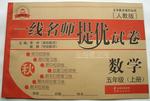题目内容
原创(七)
Alcohol is often taken as a symbol of a special celebration or as a sign of friendship.So it is 36 to see people toasting with a large glass of alcohol to the health or fortune. 37 , every year, alcohol also ruins thousands of lives and destroys many happy families .
Some people drink alcohol to 38 their tension or pain. They 39 think that through drinking, they can 40 from their problems and worries. But it is never a 41 .During those hours of drinking, alcohol only numbs(麻木)their senses and makes them forget their worries. 42 , when they wake up, their problems are still unsolved .
A 43 alcohol drinker is running the great 44 of getting heart diseases and liver(肝脏)failure. Too much alcohol taken into the body system, death will 45 occur. Alcohol also affects unborn babies 46 . Those pregnant mothers with 47 alcohol in their blood system risk 48 their unborn babies to suffer from defects(缺陷)at birth. 49 , babies are innocent victims due to their mothers’ mistake. Therefore they should be extremely cautious of any alcohol and it is better to 50 all drinking during pregnancy(怀孕期).
Drunken driving is one of the worst 51 of alcohol abuse. Every year, many lives are lost due to 52 driving on roads and highways. A drunk driver cannot see and judge the distance clearly and will find it difficult to control his vision and 53 on the road,so he 54 control over his reflexes. That is 55 accidents occur. Not only does he hurt himself but also other innocent road users.
36.A.normal B.common C.ideal D. regular
37.A.Accidently B. Fortunately C.Excitedly D. Unfortunately
38. A. relieve B.increase C.create D.produce
39. A.usually B.surely C. mistakenly D. aimlessly
40. A.differ B. solve C. cancel D. escape
41. A. success B. solution C. fact D. decision
42. A. However B. Meanwhile C. So D. Besides
43. A. social B. heavy C. addicted D.light
44. A.advantages B.possessions C.risks D.measures
45. A. eventually B. probably C.hardly D.strongly
46. A.anxiously B. Disastrously C. extensively D.differently
47. A. proper B.little C. excessive D.no
48. A. causing B.making C. having D.protecting
49. A.Above all B.First of all C.All in all D. After all
50.A. run out B.leave out C. cut out D.carry out
51.A. reasons B. causes C. effects D. examples
52. A. drunken B.normal C.careless D. dangerous
53.A. patience B.emotion C. judgement D.imagination
54.A.manages to B.tries to C.refuses to D.fails to
55.A.when B.what C.where D. how
36—40:BDACD 41—45:BABCA 46—50:BCADC 51—55:CACDD
解析:
【解题导语】虽说“无酒不成席”,同时,酒也是“穿肠毒药”,过量饮酒带来的危害也不少。每年不知有多少人因喝酒造成了意外,多少人把命断送在这酩酊酣热之际,多少健康消失在瓶罐之间。忽略了酒精的危害,我们正一步步远离健康。
36.B.common在这里表示“不稀有,到处可见”。common侧重“普通”,表示“时时发生,人所共有”,其反义词为rare。如:a common saying (俗话),common knowledge / sense常识。normal指“正常的”、“正规的”、“常态的”, 如: the normal temperature of the human body.;ideal“理想的;完美的;空想的;想象中的 ” This dictionary is ideal — it’s exactly what I needed. 这本词典很理想,正是我所需要的。 ideal plans for making money 赚钱的空想计划 ;regular 指“有规律的”、“正规的”、“定期的”, 如: He kept regular hours. 他过着有规律的生活。本题易误选A。
37.D.Unfortunately,承上关系,表反意。Accidently“偶然地, 意外地”;Fortunately“幸运地”;Excitedly“兴奋地”,均不合语境。
38.A.relieve“减少;减轻”。其它为增加等意,不合语境。
39.C.mistakenly “错误地, 曲解地”。 本题易误选A。
40.D.escape from“逃避”;cancel“放弃、取消”为及物动词,不与from连用。
41.B.solution“解答, 解决办法”,其它不和句意。本题易误选AC。
42.A.However“然而”so“因此”,用作连词表示结果,用法与therefore相似;besides“另外,除此以外”从句子意思,只有A合适
43.B.a heavy drinker“能喝的主”;a social drinker “酒量一般的人”;a addicted drinker“喝酒上了瘾的人”;a light drinker“不太会喝酒的人”。 本题易误选C。
44.C。run the risk of doing…“冒险做…”。
45.A.eventually“最后, 终于”,可表示由某种原因导致的结果。本题易误选B。
46.B.disastrously“悲剧地、灾难性地”;extensively“广阔地”。此题不易选。
47.C.excessive(overfull),其它不和句意。本题易误选B。
48.A.cause sb./sth. to do…。make和have后不定式省略to;protect与from连用。本题易误选BC。
49.D 。above all;after all;first of all;all in all用法辨析:本题易误选A。
①above all意为“最重要的是;尤其是”,强调要引起特别注意。如:
We must work,and above all we must believe in ourselves. 我们必须工作,尤其重要的是我们必须树立信心。 ②after all意为“毕竟;终究;到底”,表示让步。如: He is certain to come. After all, he's already accepted the invitation. 他肯定来,他毕竟已接受了邀请。 ③ first of all意为“首先”,强调次序。如: First of all, let me introduce myself to you. 首先,让我作个自我介绍。 All in all “完全地”
50.C.cut out“戒掉”=get rid of。run out“用完”;leave out“省去, 遗漏, 不考虑”;carry out“完成, 实现, 贯彻, 执行”,均不合题义。本题易误选B。
51.C.effect“结果”,如:Alcoholic drink can have a bad effect on your body. 含酒精的饮料会对你身体有很坏的影响。;cause和reason表示原因cause指“产生结果的原因” 或“使某事发生的原因”, 如: Carelessness is the cause of his failure. 粗心是他失败的原因。
52.A。本段开头有提示。
53.C.根据前面的vision“视野”可判断选judgement。
54.D.fail to do sth.“未能做某事”。 manage to设法做到某事;try to尽力做某事;refuse to拒绝做某事,均不合语境。
55.D.本句意思为“事故就是这样发生的。” how conj. (用于间接陈述中,意义和作用与that相仿) 如:This is how we became acquainted. 我们就是这样认识的。本题易误选B。

 一线名师提优试卷系列答案
一线名师提优试卷系列答案